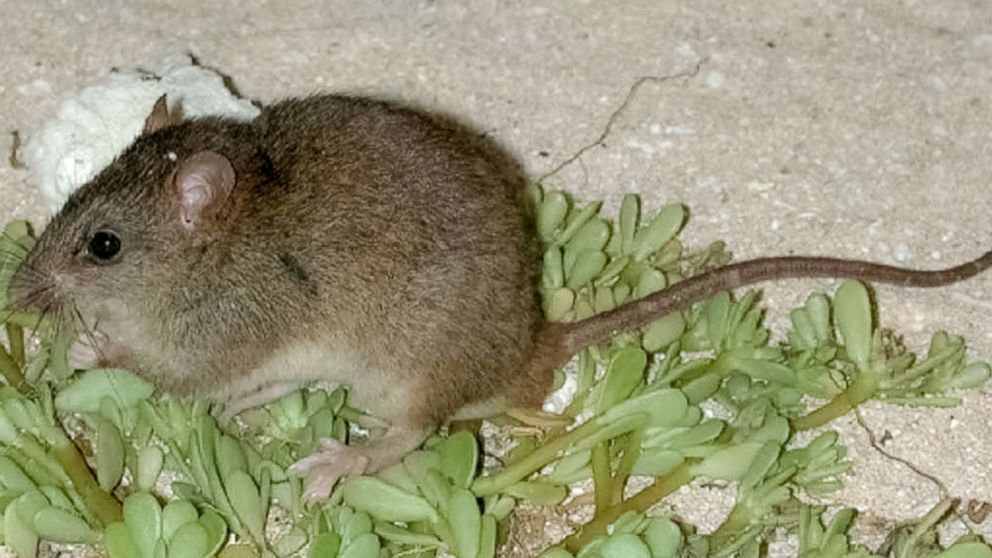Australian Rat Could Be First Mammal Made Extinct by Human-Caused Climate Change, Report Says
Mosaic-tailed rat has reportedly been wiped out by human-caused climate change.

— -- An Australian rodent may have become the first victim of extinction as a result of human-caused climate change, researchers in Queensland said in a new study.
Populations of the Bramble Cay melomys, a mosaic-tailed rat found only on a small reef island at the northern tip of the Great Barrier Reef called Bramble Cay, appear to have disappeared.
“Because exhaustive efforts have failed to record the Bramble Cay melomys at its only known location and extensive surveys have not found it on any other Torres Strait or Great Barrier Reef island, the assertion that Australia has lost another mammal species can be made with considerable confidence," the survey by the University of Queensland stated.
The report, published in June of 2016, reveals findings of a comprehensive survey of 900 traps, 60 camera traps and known habitats of the tiny mammal on the island, conducted from August until September of 2014. The mammals were unique in that they are "considered to be the Great Barrier Reef’s only endemic mammal species," the report stated.
Because of the nature of the rodents' specific island habitats, researchers knew it was the destruction of those habitats by rising ocean levels that led to their demise.
"The key factor responsible for the extirpation of this population was almost certainly ocean inundation of the low-lying cay, very likely on multiple occasions, during the last decade, causing dramatic habitat loss and perhaps also direct mortality of individuals," the study authors said.
"Available information about sea-level rise and the increased frequency and intensity of weather events producing extreme high water levels and damaging storm surges in the Torres Strait region over this period point to human-induced climate change being the root cause of the loss of the Bramble Cay melomys."
All hope is not lost for tiny melomys rodents, however. Researchers believe that other, closely-related Bramble Cay melomys, perhaps even the origins of the species, might be present in the Fly River delta of Papua New Guinea.
"Consequently, at this stage, it may be premature to declare the Bramble Cay melomys extinct on a global scale.”
This report holds global significance in that "this probably represents the first recorded mammalian extinction due to anthropogenic climate change."
The Bramble Cay melomys has been listed as "endangered" since 1992 when it was included in the Queensland Nature Conservation Act 1992, and in 2008 the Australian Government's Department of the Environment introduced a recovery plan for the rodent, according to their website.
The June 2016 survey by Queensland researchers reveal that these conservation efforts could not keep up with the rate at which climate change affected the Great Barrier Reef.




